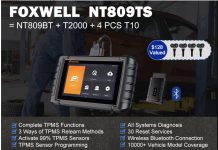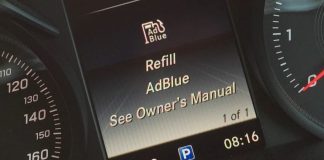Do you know that each year there are 1.35 million fatalities and 20-50 million serious injuries caused by automobile accidents? According to the World Health Organization (WHO), not only do these accidents result in a great loss of life and livelihood, but they also have a profound effect on the GDP by 3% on average.
Simple precautions, like being aware of other motorists and being calm in case of an accident are the best approach to safeguard yourself from these horrible situations. Aside from that and keeping your car in good shape, having car insurance is always a smart choice.
To get the best quotes for your vehicle as well as your needs, try to find a reputable brokerage online. For example, if you live in Alberta, look up “car insurance quote Alberta online.” Find the brokerage with the best reviews that can give you a quote for the province of Alberta and decide if what they offer is exactly what you need for your particular situation.
To ensure your loved ones’ and your well-being on forthcoming road journeys, consider these six basic yet crucial tips.
Keep Your Car in Good Working Order with Routine Checks
Whether your car is many decades old or relatively new, you must keep up with routine maintenance that includes checking all of its parts and components. Care for and keep (or replace as necessary) the following parts up to date:
- Tire pressure, extra tire, and tire
- Belts, hoses, filters, and radiator caps and filters
- Lights, batteries, wiper, and signaling
- Oil, wiper fluid, coolant

Do Not Overload Your Vehicle
Always be aware of the vehicle’s weight capacity and avoid exceeding it. Try not to transport more passengers than your car can safely hold at all times.
In addition, you should never allow passengers to store large baggage or other baggage behind their seats since this adds unnecessary weight to an already heavy vehicle. Just tuck your bags and belongings beneath the seat and make sure they’re nice and snug.
Make Sure You’re Ready to Drive
Never think you’re completely safe on the road just because your car is in working shape. Almost all car accidents may be traced back to drivers’ lack of caution and preparation. Because of this, it’s essential that you are ready for your vacation in advance.
If you have an early morning family outing planned, make sure you get a decent night’s rest the night before. Prepare yourself and your fellow travelers by bringing items like sunglasses and other necessities. If you are traveling with children, particularly infants, you need to exercise additional caution. This includes using safety equipment like separate infant car seats. Close all windows and doors, and use the car’s child safety locks, to keep everyone inside secure.
Never Multitask Behind the Wheel
Stash your phone away and don’t pick up or return any calls. Keep your speed below legal limits so you can stop the car easily and safely in an emergency.
Make sure you’re sitting up straight and comfortably and you keep the controls, especially the brake and gas, within easy reach. Your vehicle’s turning radius will increase as a result, allowing you to apply full force when required.
Make a Plan
If you’re on a lengthy journey by car, you should prepare ahead of time. Plan out where to eat, rest, and make phone calls, as well as where to stop for gas, food, and rest stops. Don’t ever let yourself or your passengers become hungry or thirsty while on the road. Instead, pull over for a snack or a drink; it won’t take long at all.
You should always buckle up, and you should never let your kids ride without their own seat belts on. Keep an eye on your kids and stop any fighting or loud sounds if you don’t want to be disturbed while driving. Distracting sounds might make it difficult to focus on the road. Keep in mind that even a little slip-up might have disastrous consequences.
Prepare for the Unexpected
Maintain a state of constant vigilance and preparedness, ready to respond quickly and effectively to any emergency. Check that you have the following items on hand and ready to use:
- Equipment for changing tires
- First-aid box
- An operational and fully charged mobile device
- Dry food, water, and other fluids
- A flashlight.
Final Words
In addition to the things we mentioned above, you should ensure that you and any passengers have access to emergency contact information, including not just the numbers for local emergency services but also your vehicle’s manufacturer and insurer. When traveling through rough waters, they will be invaluable lifelines.











